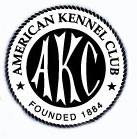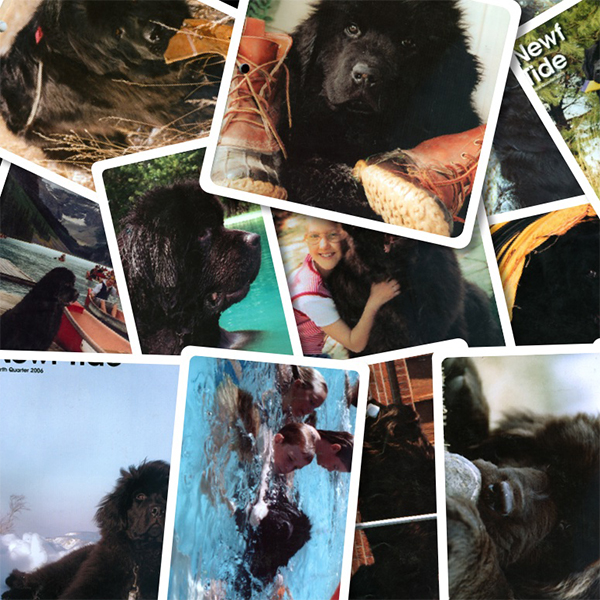
Our guest columnist this month is Kymythy Schultze, a certified clinical nutritionist and animal health instructor, and author of "Natural Nutrition for Dogs and Cats". She has raised Newfoundlands more than 20 years and has experience in feeding both commercial and homemade diets to her dogs.
There’s a trend in feeding dogs, and the canine community is in an uproar. This new development is a departure from what our most well-respected veterinarians, breeders, and other dog fanciers have long advocated and used successfully to raise dogs for many years. Because this “new” way of feeding dogs has only been in use for a fraction of the time as the old way, some find it difficult to accept. The new way of feeding dogs comes in cans and bags and is called commercial dog food.
The conflict is understandable. As they say, old habits die hard. After all, dog-lovers have successfully raised many generations of healthy animals on the "traditional" diet - homemade diet - for thousands of years. The new feeding trend has only been employed for about the last 100 years.
True, this new feeding practice is convenient – the food comes ready-made in cans and bags - but it is a departure from the old "tried and true" method that has been used since the domestication of dogs.
It is an interesting contradiction of human nature that we more readily accept personal and cultural differences in feeding ourselves than regarding feeding our dogs. We rarely lambaste strangers for their preference in dining, whether they choose to prepare meals at home or eat ready-made meals. Yet the same respect is often forgotten when it comes to personal preferences in feeding our dogs.
To discredit those who choose to feed their dogs homemade meals shows great disrespect for those dog-lovers of long ago who devoted their lives to nurturing and developing our breed into the magnificent dogs of today. Our breed’s foundation stock was reared on homemade diets. Criticizing those who choose to continue to feed their dogs this way is criticism of their intelligence.
Likewise, to discredit those who choose to feed commercial diets to their dogs is also not constructive. An individual’s preference in dog feeding, based on what they believe is correct, is perfectly valid. And our wonderful canines thrive on a myriad of foods and feeding techniques just as we, their human counterparts, do. Criticizing those who choose to feed commercial products demeans their judgment and faith in medicine and science.
What makes a "good" diet? A good diet must be nutritionally sound for the dog and must make sense to the dog’s owner. It must fit into their lifestyle and their expectations. It must keep the dog in the desired condition and health. But these qualities are as varied as we are. So, it is reasonable to assume that our preferences in feeding our dogs will also vary. And yes, there is a range of canine health and conditions in each category of feeding style.
We live in a marvelous age today, one in which it is acknowledged that embracing our differences is key to planetary survival. Our nation’s leaders strive to promote tolerance, knowing that without it we will never achieve our goals. In our dog world, we too could use more tolerance and respect for those who do things differently from ourselves. Let’s work towards dog-world peace. Our philosophy and methodology may differ, but let’s appreciate what we share - an intense love for our wonderful Newfoundland dogs and the desire to have them living with us, happy and healthy, for as long as possible. -KS

